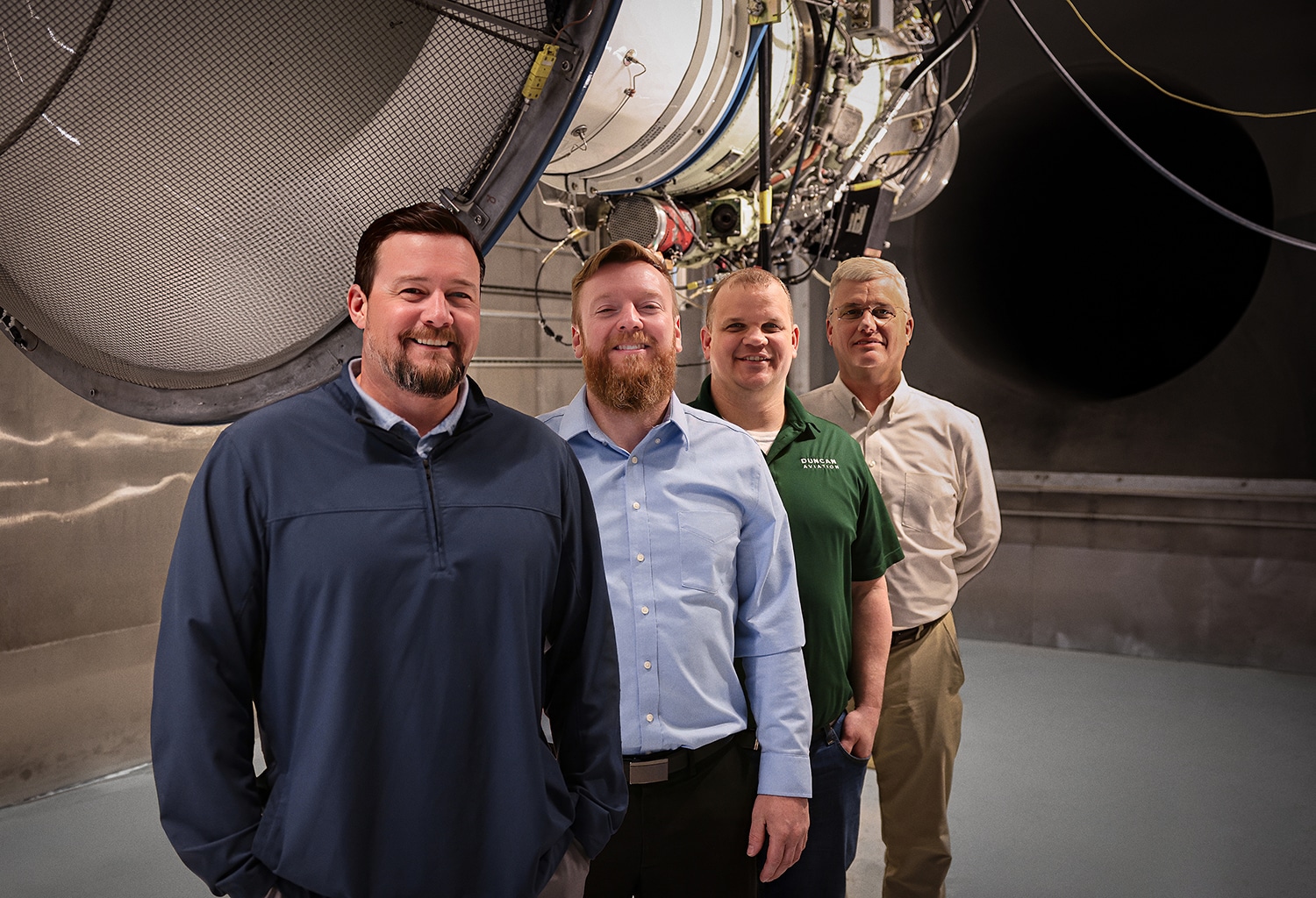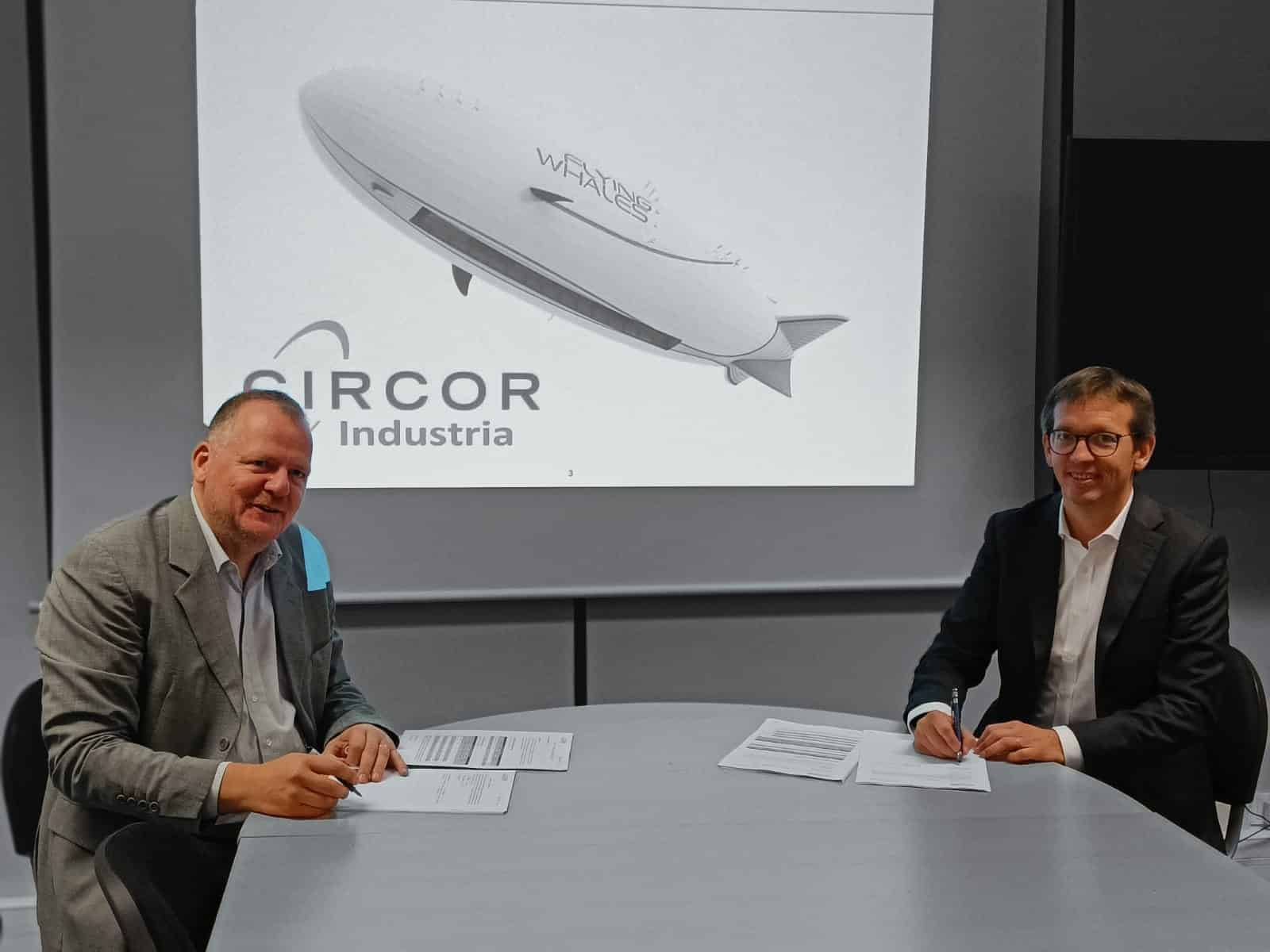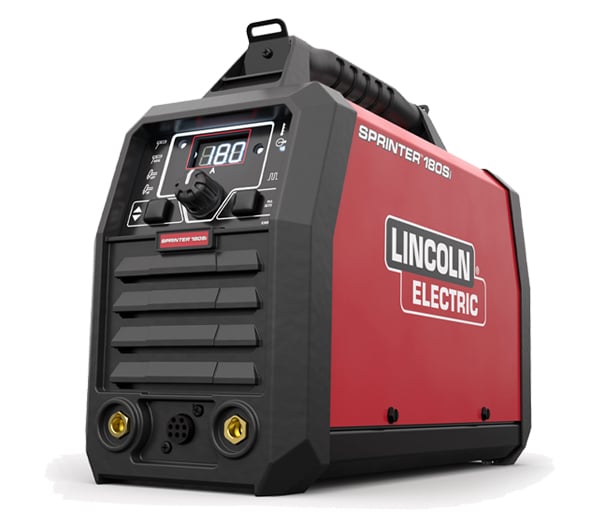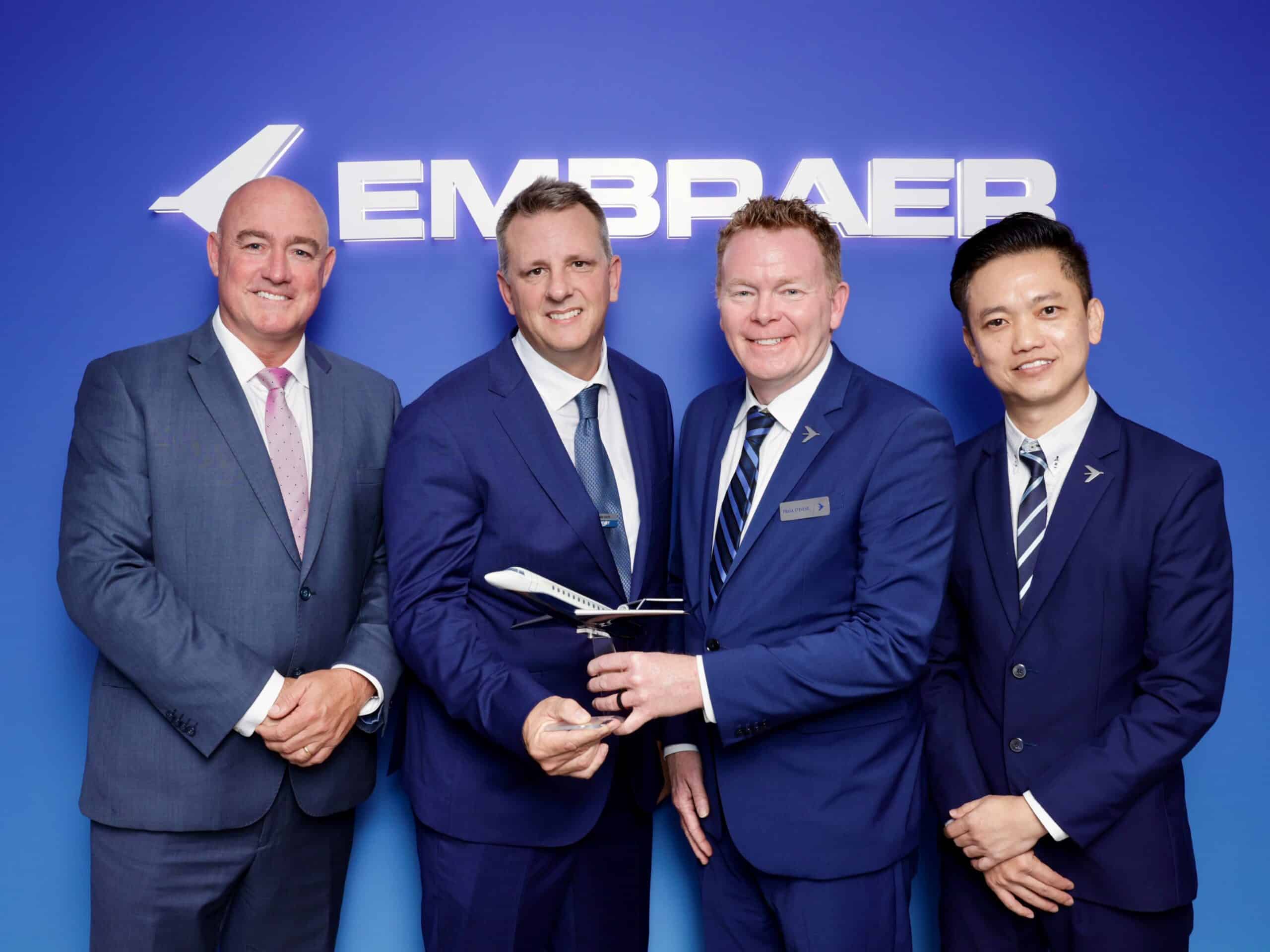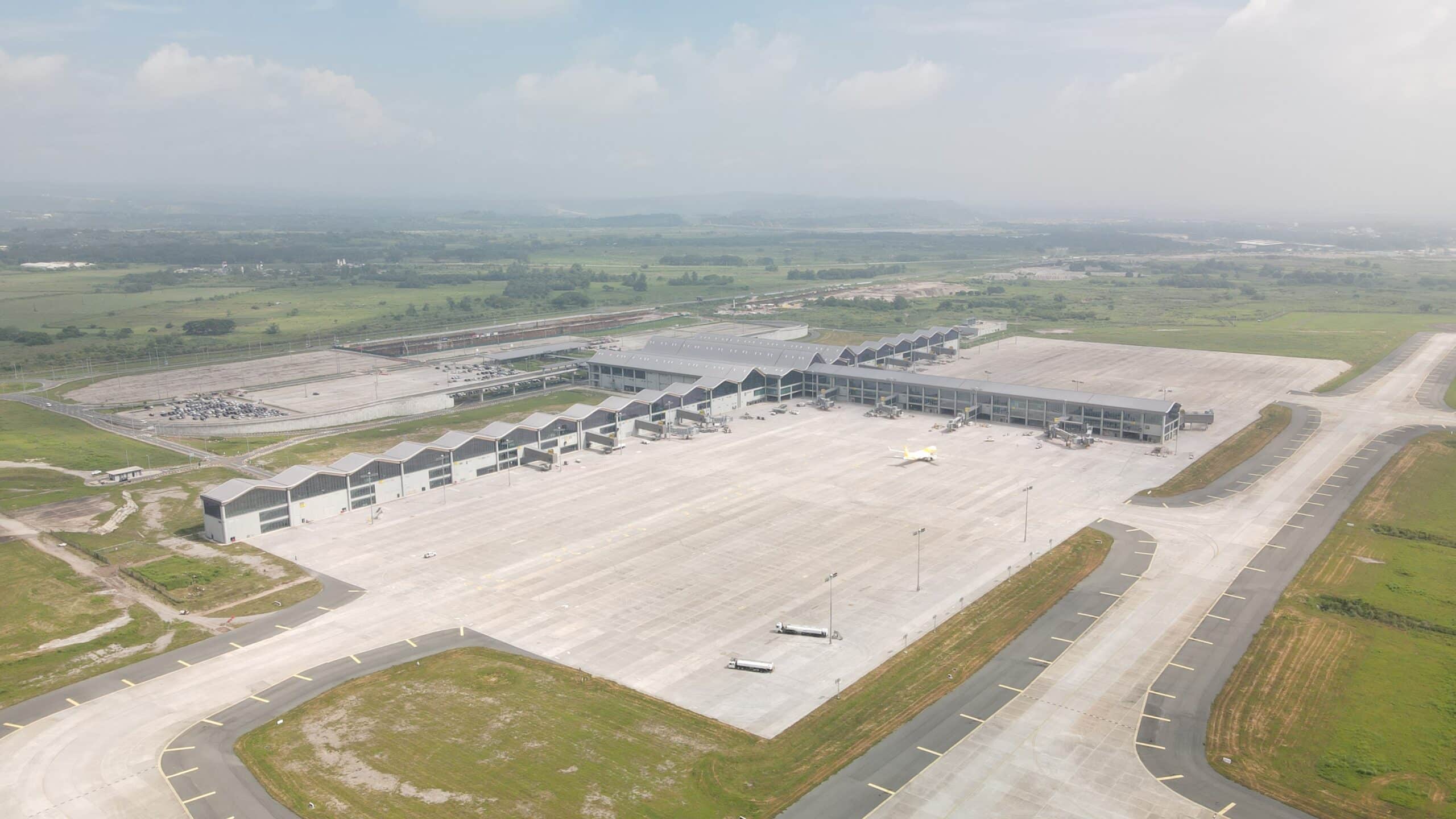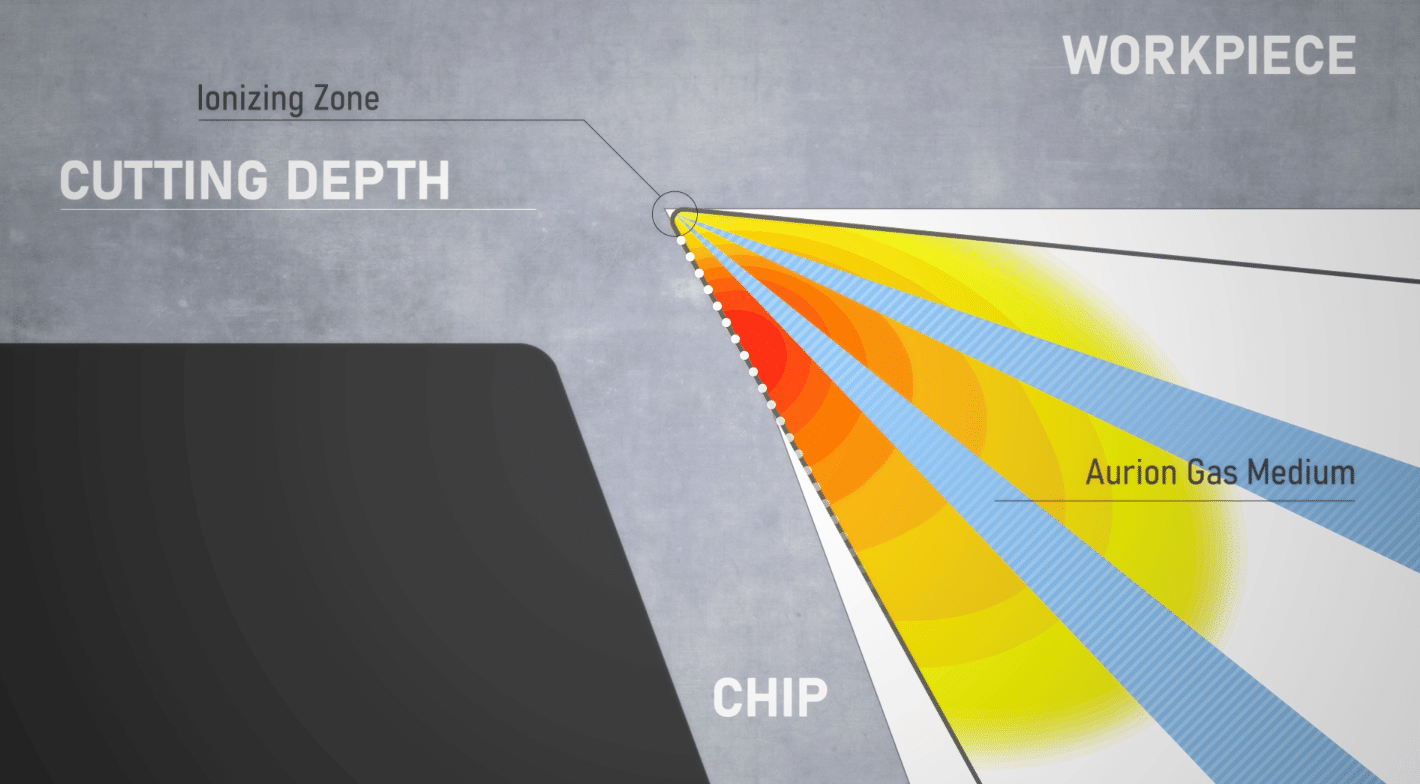Duncan Aviation is pleased to announce leadership changes to its Turbine Engine Services in Lincoln, Nebraska. Scott Stoki, Brad Wales, and Tyler Spurling have been named Managers of Engine Services for Pratt & Whitney, Honeywell, and Line Services, respectively.
Duncan Aviation’s engine overhaul services has experienced significant growth since 2015 as the company’s Honeywell service authorization was extended to include HTF7000 (AS907) Series Minor. Then again, in 2017, with the designation as a Honeywell TFE731 Heavy Maintenance facility.
Most recently, an announcement was made during the 2023 NBAA BACE convention in Las Vegas by Pratt & Whitney Canada (P&WC), designating Duncan Aviation’s MRO facility in Lincoln as a DOF (Designated Overhaul Facility) for PW300 and PW500 turbofan engines.
Scott Stoki—Manager of Engine Services, Pratt & Whitney
In 2005, Scott Stoki joined Duncan Aviation as an Engine Line technician, where he demonstrated his natural leadership abilities, taking on positions with more responsibilities. He then transitioned into the Quality department as an inspector, gaining a new appreciation for detailed paperwork. He returned to engine services in 2019 to manage the Honeywell engine overhaul shop.
With the new DOF announcement, Stoki shifted his focus and has assumed leadership of P&WC overhaul capabilities. He has been instrumental in identifying and purchasing advanced machinery, planning for shop safety enhancements, and guiding team member training and growth.
Duncan Aviation will break ground this summer on a new state-of-the-art, 36,000-square-foot DOF featuring 12 engine maintenance bays, dedicated storage racks, a new parts inventory warehouse, and an expanded backshop area.
Brad Wales—Manager of Engine Services, Honeywell
Brad Wales started his career at Duncan Aviation in 2015 as a technician in the Engine Line Shop. He quickly progressed through the ranks and became a Project Manager before returning to the Engine Line Shop as the Manager.
Wales’s transition to the Manager of Duncan Aviation’s Honeywell overhaul services gives him day-to-day leadership over the company’s 40,000 sq.-ft. Honeywell engine complex, which features TFE731 Series Heavy and HTF700 Series Minor Authorization services.
In-house engine capabilities such as a clean room, media blasting machines, shot peen equipment, a paint booth, NDT capabilities, and a balance room are improving, expanding, and centrally located to facilitate maintenance team efficiencies between all OEM-authorized operations.
Tyler Spurling—Manager Engine Line Services
Since Tyler Spurling joined Duncan Aviation in 2007, he has worn many hats, beginning as a technician in the Engine Line Shop. Within six years, he became a team leader and again in 2016, leading an engine RRT (Rapid Response Team).
In 2019, he took over the LNK MRO airframe and engine RRT, eventually consolidating the mobile airframe AOG and inspection services based at Duncan Aviation’s three MRO locations in Battle Creek, Michigan, Lincoln, Nebraska, and Provo, Utah. He served as Manager of MRO RRT for three years before returning to the shop, where he was originally hired as Manager of Engine Line Services.
Engine Line Services has a dedicated 4,050-square-foot shop just off one of Duncan Aviation’s 40,000-square-foot maintenance hangars, where engines are torn down and built up free from aircraft moves and unnecessary interruptions.
Thirty-five years ago, Doug Alleman, Vice President of Engine Services, joined Duncan Aviation as an A&P mechanic in the engine shop. He has witnessed first-hand the growth and expansion of the company’s engine capabilities and shop facilities and says this growth is a testament to Duncan Aviation’s 30+ year relationships with Honeywell and Pratt & Whitney Canada.
“The rapid expansion of our turbine engine overhaul services underscores our commitment to our OEM partners, including Honeywell, Pratt & Whitney, their engines, and mutual customers.”
He goes on to say that with each year passing year, the demand for Duncan Aviation’s engine maintenance services continues to grow. “Nearly 63% of the engines sent in for inspection, repair, and overhaul are shipped in from aircraft located at airports worldwide. Our engine RRTs (Rapid Response Teams) network will be vital in supporting the increased business.”
In addition, Duncan Aviation is authorized by GE, Williams International, and Rolls Royce to perform a broad spectrum of engine services and inspections.

